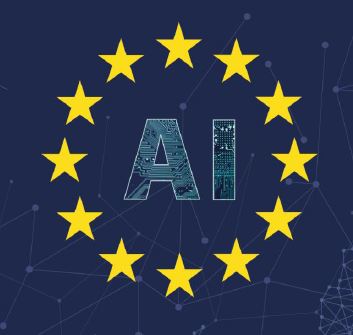Making your data work
AI ETHICS
AI is not just about building new products. What will those AI products do when deployed? How users will react to new AI products? We have been involved in the study of user experience since before the current level of sophistication of AI projects, so know how to define a comparative study that will investigate AI use. We are also aware of the issues that surrounding data, ever more important since modern AI systems require a large amount of data. Thus we can advise you about AI ethics. See below and to find out more, get in touch.
HOW CAN WE ADVISE YOU ABOUT AI ETHICS?
History of ethics
Ethics has been an active field of philosophy, informing the study of how people should live, at least since Classical Greece. But AI only commenced as a research area in the 1950s. What you may consider the most interesting forms of AI today, those that will respond to you with text or images, have only been developed in recent years. So where does ethics come in?
AI in human experience
AI is not just a research area today, it is also an active area of business applications. That means that it can impact on a lot of areas of our experience: from health, through education, law enforcement to finance and travel, to name but a few. The common feature of these otherwise distinct business sectors is that they involve interaction between people and technology, and they require data.
Use of computer technology
You use technology every day through your smartphone. You connect globally with other services through the apps downloaded on it. It may not be possible to determine where exactly the data centres you are dealing with are. When you access many online services, you are may be interacting with AI, as well as stimulating actions by employees. You may be opening up further opportunities for interaction with AI by allowing cookies, even if you have not asked for them.
AI opening up new directions
But this is not all bad. AI is creating positive solutions in image recognition for healthcare or in wildlife conservation, to name two areas. Because our experience of technology over the last few decades has shown that it is very difficult to predict the future, AI for good is a realistic direction, even if not all AI applications lead in that direction. But to get that we must be able to assess what ethical AI is.
Ethical AI
Ethics, as mentioned above, is that branch of philosophy that deals with the standards of how people live with each other. Now we are in a situation where AI is thrown into our lives. When you think about an AI system as if it was an encounter with a person you didn’t know, some things are similar:
- Is it trustworthy?
- Does it respect your autonomy?
- Are you sure that it will not cause harm (to you or anyone else)?
And some things are slightly different because they depend more on understanding of the technology:
- Will it act fairly (does it not use an algorithm that has intrinsic bias, or that will discriminate against certain categories of people)?
- Are its actions transparent (based on an algorithm can the origin and conclusion of its actions be explained)?
These questions are inspired by the European Union’s High Level Expert Group on AI Ethics Guidelines for Trustworthy AI that have gone on to stimulate much additional study of the requirements for ethical AI.
Advising you on ethical AI
We draw upon a wide range of sources in addition to that above. We are in touch with other experts in AI ethics. Because AI is a rapidly changing field we continually update our knowledge in this area.
We will work in this way to advise you. Then we will look at your AI concept and assess it against frameworks for guidance on AI ethics. The outcome will allow discussion of sections that are more important. We will produce a report on our findings once you are satisfied with the conclusions.
To find out more, get in touch.
Learn more about AI ethics
For more information read about why AI is more than software development and project management. You may also be interested in why high-risk AI systems may be a problem. The application of AI systems may lead to ethical problems in intellectual property: read about AI and patents and other issues relating to intellectual property.
Other services: responsible AI
In addition, our experience in project management and technology research enables us to assist your production of responsible AI. Learn more about about our responsible AI services.
MORE ABOUT OUR SERVICES
Data Analytics Business Research Business Funding and Networks Responsible AI AI Ethics
